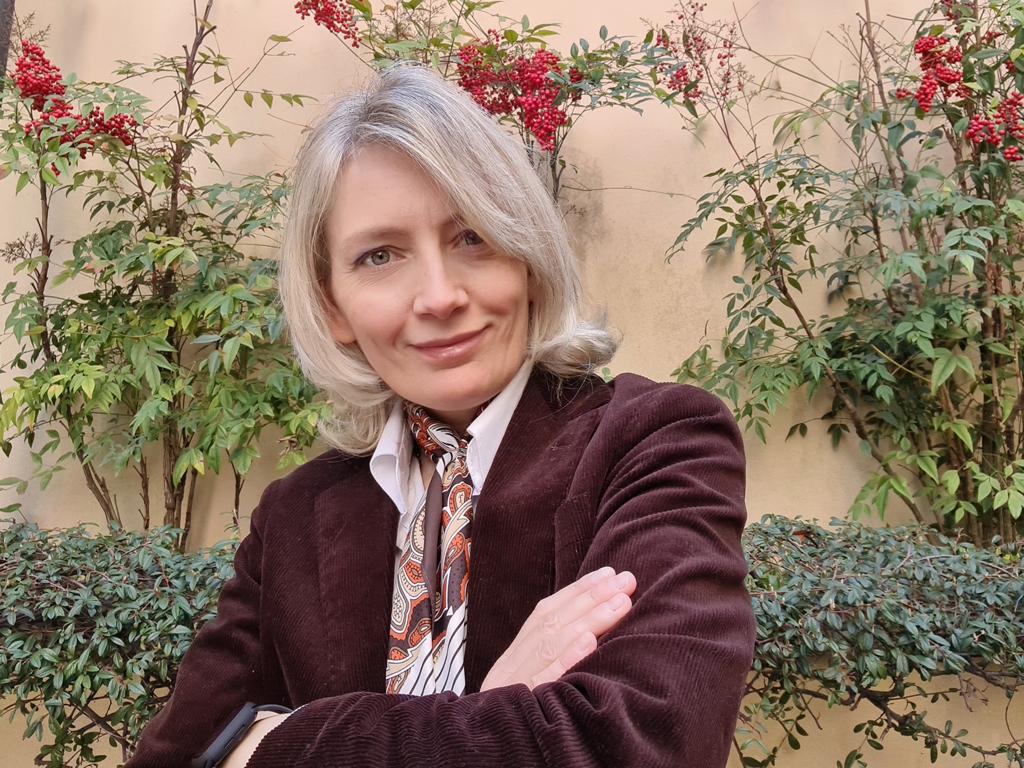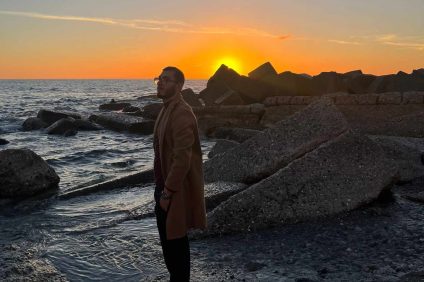How much have your Italian origins and the culture of your country affected your professional career?
I can say that my Italian origins have counted for nothing in my professional career. Perhaps, if I had been a film and theater actress, I could have brought into these realities many themes also linked to my nation, to my city, that is, Rome, rich in important historical finds, without taking anything away, more generally, from the riches wonderful that Italy has. Rome is the "caput mundi", it has something more to tell with all respect for the Etruscans. As far as dubbing is concerned, I noticed that we Romans can more easily replicate the dialects of other regions and "be perfect" in a fairly "classic" Italian.
In your opinion, is Italy still a meritocratic country as far as dubbing is concerned? What could be the side effects of not having quality people in this industry?
Absolutely not. It's not so much the country that doesn't make dubbing meritocratic but it's the "people" who soil it. I notice that nowadays, the more there is progress, which I actually call regression, the more muddied Italian art becomes, in a truly scandalous way. Just think about the past. We had fathers of dubbing such as Emilio Cigoli, Gualtiero De Angelis but also my own grandfather, Arturo Dominici. These are "grown-ups" who were the proponents of something innovative because dubbing did not exist, it was born with them and they left us a legacy which, some of them carried forward in the 60s and 70s with great mastery and great respect for the word “art”. But then, since the 2000s, in this sector I have only found childishness, ignorance, vocal disharmonies, not to mention attitudes. Certainly there has always been envy among colleagues but never malice, at least among the "greats" of the past. Currently, unfortunately, we are wallowing in a mud that is now managed by characters who have become a kind of lobby, who secure each other's jobs and, above all, if a person tries to enter a meritocratic acting context and knows he is worthy, they only let her do it if she is willing to “compromise”. What was once a "parterre de rois" has become a "parterre de m...", to put it in French. As for the side effects of not having quality people in this sector, I believe that all of this leads to a discontinuous acting ability that leads the actor and, in particular the neophyte, to a kind of disorientation because there are too many dubbing courses to follow, even very expensive and the new recruits are increasingly subject to a fashionable articulation, sometimes even exaggerated to the point of being fake.
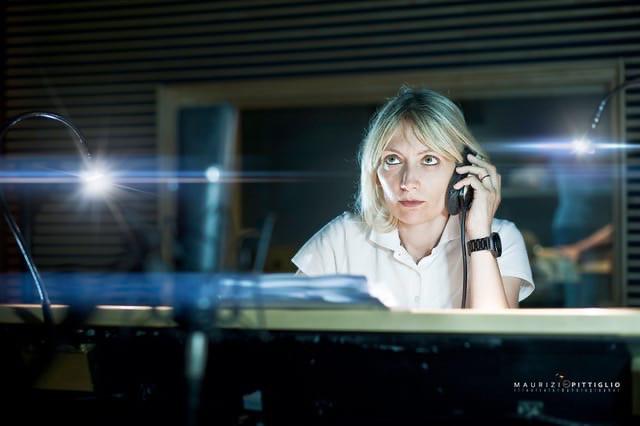
Let me explain: today everyone is in a hurry, the new voice actors often eat their words, in many films you don't understand a word, you never hear the finals, demonstrating the acting incapacity that distinguishes them. All this means that we are now surrounded by all similar and therefore interchangeable voices that only serve to "economise on the labor product". If you have a "commercial voice", it can be placed everywhere and squeezed like a lemon to have the producers guarantee that they are playing it safe, without using new voices which could, according to their point of view, create customer problems. So "the insiders" decide to always use the same voices, which sometimes even slur (also making you hear a Romanity that you didn't hear before), thus giving a bad result. I assure you that today's voice actors, ranging in age from 15 to 30, are all the same. I hardly recognize them. There was a real vulgarization. The dubbing schools give them the opportunity to follow diction and acting courses but, at the same time, they do not help them grow because the same ones who get paid to teach are those who, in some cases, don't have the patience to follow them all and therefore out of 30 students, yes and no, less than half manage to fit in.
Is Italian dubbing and Italian professionalism still appreciated abroad? In your opinion, what peculiarity makes it stand out on the international and global scene?
Yes, dubbing is popular abroad. I am the official dubber of many US and Canadian TV movies and therefore, I often find myself doing my job on the voices of various actresses that I have known for some years. One of these, Ashley Jones, tells me she is proud of her "Italian her voice" and she enjoys posting my videos on her profile in which she doubles as her. As regards the peculiarity of the Italian dubber, it must be said that the latter, in order not to remain just a voice, is also willing to emerge as an actor (especially in fiction) by going on television, or to be taken as a film actor (also for cheap comedies). In short, he does everything to be seen. I'll tell you that some of these "professionals" made it, others who were already film actors or comedians jumped into dubbing. All these people need to appear, to get noticed for what's behind their voice. This need to overdo it demonstrates that they are not satisfied with what they have been able to give to cinema, TV series, cartoons, etc. Then there are those to be considered all-round actors… but we are here on other levels.
Do you dream of taking voice acting overseas? Why?
Basically I don't know how to bring dubbing abroad but it would be nice if outside our country we could savor the culture, poetry and musicality of Italian dubbing which has nothing to do with the German or the exaggerated Japanese one. Actually, there are two very famous Italian colleagues, one who lives in Paris and the other in Spain, who do it… but I think this doesn't mean taking Italian dubbing abroad. For example, thinking about it, I think that, in part, Raffaella Carrà managed to do it initially when she went to work in Spain.
You have also worked abroad. Is the Italian dubbing still credible outside our country?
I can't answer this question as credibility can only be ascertained by asking a foreigner if he has ever seen "Harry Potter" or "The Lord of the Rings" dubbed into Italian without speaking of redubbing, another disgusting scourge of my job after talent .
What were the main difficulties you had to overcome to become an established voice actress in Italy?
The greatest difficulties that I have experienced on a daily basis are due to a tremendous "entrepreneurial mafia" in this sector which has led to an upheaval in the character of some directors, slaves of the system. Despite having noticed my talent, the latter did not distribute me because I was not well regarded, because I was considered an obnoxious madwoman, because they had to keep their protégés going or again because they had to pass the recommended ones before those who had studied perhaps for 30 years . That was the difficulty: dealing with these people. I can actually say that, despite all this, I still managed to back myself up and then finally reach high levels. In fact, in December 2021, I won the international prize "Vincenzo Crocitti" together with Roberto Chevalier, Roberto Pedicini, Luca Ward and Francesco Pannofino. A recognition that is equated by Rai and Mediaset to the "Nastro d'argento" and the "David di Donatello" and is therefore a prestigious award.
In your opinion, does the dubbing market, the needs of producers and those of the mass media risk impoverishing, reducing the talent, expressiveness and spontaneity of the voice actor?
Yes, surely all these aspects risk impoverishing the voice actors and for this very reason, in recent weeks, a strike has been called by our category. All these needs have led to an exaggerated speeding up of our dubbing processes. Up to now, they have pushed us to express our talent in a way that does not conform to what our abilities are if we did our job in a more relaxed way. There is no more time. Previously you could rehearse the jokes for longer, it was possible to have feedback with your colleague while today there are only separate columns (editor's note: the dubbing of two characters present within the same scene is done by the voice actors separately). Once, however, there were two people at the lectern, there was a "question and response" between the voice actors, there was a historian to be able to follow. Nowadays, with the fact that the material has to be delivered early, the pace of work has accelerated and unfortunately it has given rise to a lack of respect for the quality of our work of which we ourselves are ultimately the advocates.
As a dubber, what are your dreams still in the drawer?
I'd like to open a company and have at least one regular customer to be able to employ all those great mistreated colleagues of the old school and otherwise. Today, due to mafias, Freemasonry, lobbies and "private practices", all these colleagues are not only not distributed but the continuity of their artistic and professional work is not recognized.
If you could interact with a voice actor from the past, who would you choose and why? (Italian or foreign).
I would definitely choose Emilio Cigoli, for life. How much I wanted to dub next to him (as well as with my grandfather with whom I interacted until he passed away). He was the emperor of dubbing, the greatest voice ever heard in my life. He was a "great gentleman", he had that acting ability that gives you an emotion every time you feel it in all facets of him. He knew how to renew his voice every time, just think of the dubbing of John Wayne very different from that of Gregory Peck.
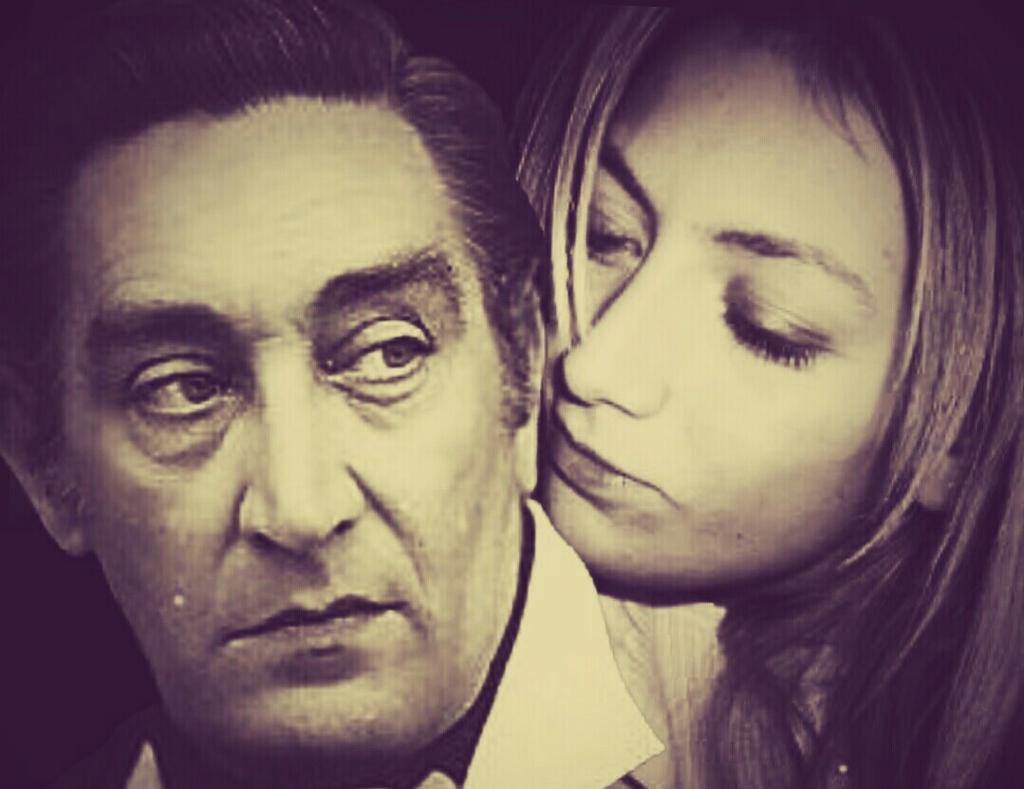
Furthermore, thinking about adults and the past, I still remember the emotion I felt when, still a child, I met Riccardo Garrone who I had the good fortune to "live" for years. I saw him at “Gruppo 30”, a company founded by Renato Izzo and where my grandfather Arturo was vice president. I was able to follow him during a dubbing shift and, believe me, it was a privilege, because he wasn't like Vittorio Gassman or Marcello Mastroianni, but he was still one of the most important characters in post-war cinema.
In your opinion, today, are there still Italian voice actors who represent the real "Made in Italy" or is dubbing simply becoming a commercial product for the use and consumption of fashions?
I must say that both situations exist. 90% of the real "Made in Italy" is becoming for the use and consumption of fashions, so much so that we are talking about a dubbing class that is going to ruin because today we all have interchangeable, equal voices, "that cannot be heard" and which they articulate in a horrible way. There is really a disinterest in returning to the values of the past, however there are still "those greats" who still respect that "Made in Italy" class and quality with which we grew up such as: Vittoria Febbi, Rita Savagnone, Giovanni Petrucci, Maria Pia Di Meo, Angiola Baggi, Ennio Coltorti, Bruno Alessandro, Lorenza Biella and Luca Dal Fabbro.
Maestro Jonathan Cilia Faro, who has always nominated her, supports the importance of meritocracy and philanthropy in the field of dubbing. Currently, who is the voice actor/voice actress that you admire the most and in what do you think it contributes to bringing prestige to Italy?
There are numerous voice actors and voice actresses that come to mind such as Angiola Baggi, Maria Pia Di Meo, Solvejg d'Assunta, Vittoria Febbi, Ennio Coltorti, Bruno Alessandro, Renato Cortesi because they are great actors who have made the word Art great from the point from a television, theatrical, partly cinematographic acting point of view but, above all, because they brought the theater to the lectern. My grandfather Arturo always said: "First you are an actor and then a dubber".
Speaking of meritocracy and philanthropy, in your opinion among the young promises, which voice actor do you think deserves to be able to emerge? For what reason?
There are many deserving young people but unfortunately there are many acting schools and those who make it are often not always the most deserving but the most supported. Here I feel like demystifying when it is said that: "those who are good work". No it is not true. Unfortunately you don't just need to study but you also need to be lucky and be able to count on the push of those who truly believe in you. There are many talented guys but they are "stuck" due to nepotism and recommendations. Today you work above all if there is a director who believes in you, which is very rare.
Based on your experience, in your opinion, is it easier to collaborate with other Italian voice actors or is it more stimulating to do it with foreign voice actors?
Foreign dubbing has nothing to do with the Italian acting art. I prefer dealing with my Italian colleagues, because the foreign ones will never be able to match our credibility with the viewer and listener.
In your opinion, what are the main characteristics that a voice actor must have in order to establish himself in Italy? Is talent enough?
I think talent is not enough. The good dubber must also study a lot, a lot, a lot of theater and must learn facial expressions in the best possible way (always at the theatre), because theater acting, unlike film acting, is complete. Let's think of how many talents, great actors and dubbers in history have come out of the "Silvio D'Amico National Academy of Dramatic Arts". Their professionalism gives us an example of what it means to act precisely with movements. The face, the body; this is what we give to the lectern. In order to reach a level close to perfection or rather, an excellent level of credibility, the voice actor must know how to move in all respects while he is acting and he must do so after having studied at least five years in a very serious acting school.
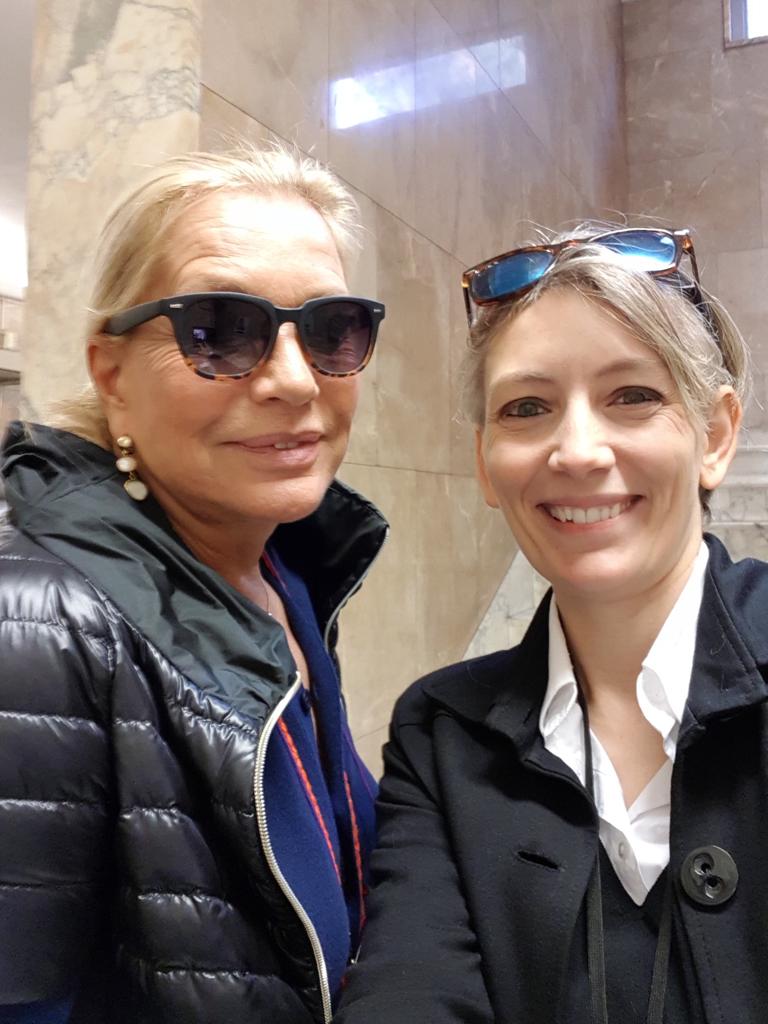
Furthermore, good skills in articulation and diction are also needed, which can always be obtained thanks to the schools. I always recommend the "theatrical category" and not the "cinematographic" one, because cinema is a mask, theater is truth, since on stage you deal with the spectator every day, you don't always act in the same way as the night before, you don't you are a speck of yourself. Every time you are another person even if you play the same character. This was one of the lessons learned having served as assistant director to the great Giorgio Lopez. The art of theater is knowing how to live with and for people.
What are your plans for the near future?
My main objective is to eliminate talent from the face of dubbing, because they destroy it and everything we have done in many years of studies to bring a quality and credible product to the ears of the viewer and listener is lost. Seeing VIPs who have nothing to do with the world of dubbing and who earn money because they are used for production to make ratings in a process, of any kind, is a mess, it is a lack of respect for our category .
Who is Lilli Manzini?
He is the last human being who has remained aware that being merciful and living (doing good) are the fundamental things to become good people and that, on the contrary, malaise and respectability are the most absolute evil, worse than money it is the cause of the evil that brings to destruction all that is wonderful in the world. Lilli Manzini is the one who loves to shout the truth, because she is tired of seeing people of value fall into the traps of people who have no respect for themselves.

